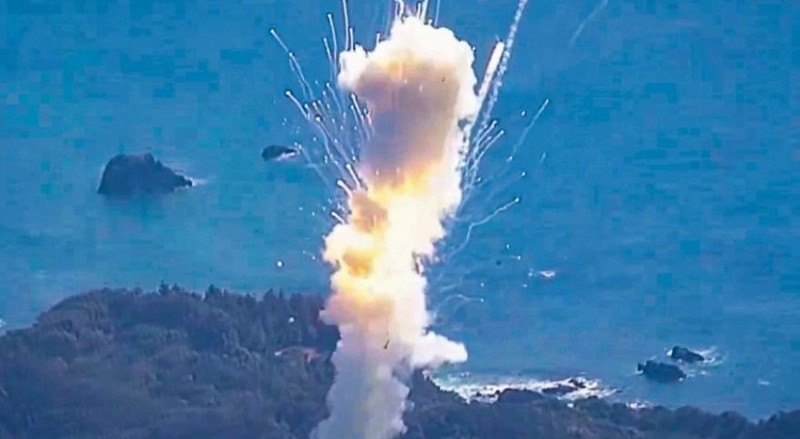
Japan's Space One faced a setback as its small Kairos rocket, fueled by solid propellant, exploded shortly after liftoff during its debut flight on Wednesday. The company had aimed to be the first Japanese entity to successfully deploy a satellite into orbit.
The 18-meter (59 ft) Kairos rocket, equipped with four stages, disintegrated just moments after its launch at around 11:01 a.m. (0201 GMT). The explosion created a sizable cloud of smoke and ignited a fire near the launch pad, visible on local media livestreams of the event from the Kii peninsula in western Japan.
The mission intended to carry an experimental government satellite, designed to act as a temporary replacement for intelligence satellites in case of malfunctions.
The cause of the explosion remains unclear, and there have been no reports of injuries. Launch pads are typically evacuated of personnel during liftoffs as a safety precaution.
Initially scheduled for Saturday, the launch was postponed due to the presence of a ship in the restricted sea area nearby.
While Japan's presence in the space industry is relatively modest compared to other nations, its rocket developers are striving to produce more cost-effective vehicles to meet the growing demand for satellite launches, both domestically and internationally.
Space One, headquartered in Tokyo and founded in 2018 by a consortium of Japanese companies including Canon Electronics, IHI's aerospace engineering unit, Shimizu Corporation, and the Development Bank of Japan, aims to provide "space courier services" to clients worldwide. President Masakazu Toyoda envisions launching 20 rockets annually by the late 2020s.
Despite delays in Kairos' maiden launch, the company has already secured orders for its second and third missions, including from overseas clients.
While Space One has not disclosed the specific launch costs for Kairos, company executive Kozo Abe stated that they are competitive compared to American rival Rocket Lab.
Rocket Lab, known for its Electron small rockets launched from New Zealand since 2017 at approximately $7 million per flight, has served several Japanese companies for their missions.
In recent advancements, the Japan Aerospace Exploration Agency (JAXA) successfully launched its new cost-efficient flagship rocket, the H3, and completed a historic "pinpoint" moon landing. The H3 is scheduled to deploy around 20 satellites and probes into space by 2030.
Japan, in collaboration with the United States, aims to revitalize its domestic aerospace sector to counter technological and military competition from China and Russia. The government has pledged comprehensive support for space startups with technology essential for national security, as it seeks to bolster its intelligence capabilities with satellite constellations.
In a move to enhance its rocket payload capabilities, Japan's defense ministry announced a partnership with Space One to experiment with fuel-efficient methane engines.
Hezbollah Rockets Strike Israel: Escalation in Israel-Hamas Conflict"